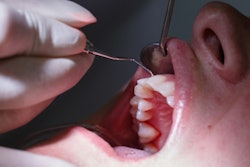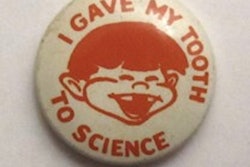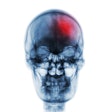Dear DrBicuspid Member,
Aluminum foil has its place in the kitchen, but did you know it comes in handy in the dental practice as well? Our top story of the week covered how you can use aluminum foil to facilitate open-tray dental implant impressions.
That wasn't the only dental "hack" featured on the website this week. We also profiled a century-old method that uses an elastic band to extract baby teeth from nervous kids. The atraumatic extraction technique can minimize trauma, manage a child's anxiety over extractions, and prevent orthodontic treatment delays.
Dentures to prevent dementia?
Researchers already knew there was a link between tooth loss and cognitive decline, but a new meta-analysis with more than 34,000 adults has shown just how strong that connection is. The group found older adults with tooth loss had a 1.48 times greater risk of developing cognitive impairment and 1.28 times greater risk of being diagnosed with dementia.
What's more, dentures may have a protective effect against cognitive decline. Seniors with missing teeth and dentures had a lower risk of experiencing cognitive impairment compared to those without dentures. The authors even went so far as to conclude that timely prosthodontic treatment may reduce the progression of cognitive decline related to tooth loss.
Ignorance isn't bliss for Medicaid billing
When it comes to Medicaid billing, ignorance of the statutes is not a valid excuse for violating the rules. To help you out, Dr. Michael W. Davis broke down what you need to know about billing (or, more likely, not billing) Medicaid patients for missed or canceled appointments. He also explained the difference between no-show billing rules for Medicare and Medicaid.
If you're interested in dental Medicaid benefits, you may also enjoy our coverage of a study that analyzed dental care use among low-income seniors. The researchers found mandating dental coverage through Medicaid could be a more feasible alternative to adding comprehensive dental benefits to Medicare.
Mouth locking device
Last but not least, you don't want to miss a new oral device that locks a patient's mouth closed. International researchers designed the device as a temporary weight loss tool that forces the user to rely on a liquid diet. However, a few of our Twitter followers have alternative uses in mind.



















